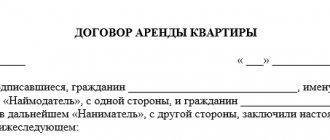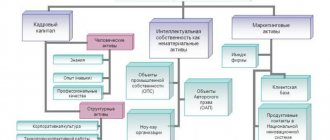1. Under an agreement for gratuitous use (loan agreement), one party (the lender) undertakes to transfer or transfers an item for gratuitous temporary use to the other party (borrower), and the latter undertakes to return the same item in the condition in which it received it, taking into account normal wear and tear or in the condition stipulated by the contract.
2. The rules provided for in Article 607, paragraph 1 and paragraph one of paragraph 2 of Article 610, paragraphs 1 and 3 of Article 615, paragraph 2 of Article 621, paragraphs 1 and 3 of Article 623 of this Code are respectively applied to a contract for gratuitous use.
3. The rules provided for in Article 609 of this Code also apply to an agreement for the gratuitous use (loan) of an object of cultural heritage.
- Article 688. Consequences of termination of a residential lease agreement
- Article 690. Lender
Does a legal entity have the right to enter into free civil contracts?
Any civil law contract is considered to be for compensation by default, unless it expressly states otherwise (Clause 3 of Article 423 of the Civil Code of the Russian Federation). Under a gratuitous contract, one party, having provided something to the other (goods, services), does not receive any reciprocal provision. If the contract provides for at least the most insignificant consideration, in value terms not comparable with the cost of the goods and services received, then such a contract is considered compensated.
The conclusion of gratuitous agreements between legal entities is generally not prohibited by law, but in practice it may be difficult or even impossible.
Thus, the subject of an agreement between legal entities should not be the donation of things worth more than 3,000 rubles (subclause 4, clause 1, article 575 of the Civil Code of the Russian Federation).
Two commercial firms, one of which is the founder of the other, cannot enter into an agreement on the gratuitous transfer of property for use (clause 2 of Article 690 of the Civil Code of the Russian Federation).
It is problematic to enter into a gratuitous agreement for a transaction that essentially involves the receipt of benefits by any of the parties - for example, when concluding an agreement for agency services.
In turn, if we talk about common types of gratuitous contracts, these include:
- the above-mentioned agreements on donation, transfer of property for use (unless their conclusion is prohibited);
- storage agreement;
- representation agreement;
- loan agreement.
ConsultantPlus experts explained when legal entities can enter into a free transaction (agreement). Get trial access to the K+ system and upgrade to the Ready Solution for free.
Responsibility of the parties
This section discusses situations in the event of which the Parties bear financial responsibility. By mutual agreement of the Counterparties, many circumstances can be included in this clause. We will focus on those that are the main ones. So, in the text of the document the points are written as follows:
The parties bear financial responsibility for failure to fulfill or improper fulfillment of their obligations under this agreement. The Lender is responsible for the shortcomings of the object handed over to him that interfere with its normal use. If such shortcomings were specified by the parties when concluding the transaction, the Lender is not responsible. The borrower bears financial responsibility in the event of damage to the property handed over to him for use under an agreement for the gratuitous use of non-residential premises. The borrower bears financial responsibility if the premises are not used for its intended purpose.
Free provision of property preservation services
In the general case, an agreement for the storage of a thing transferred from one person to another implies remuneration (clause 1 of Article 896 of the Civil Code of the Russian Federation). However, the parties have the right to include provisions in such an agreement under which the party that accepted the item for storage will not receive payment for services rendered (clause 5 of Article 896 of the Civil Code of the Russian Federation).
In addition, the very possibility of free storage is provided for in clause 2 of Art. 897 Civil Code of the Russian Federation. It also says that the depositor must reimburse the custodian for the costs associated with ensuring the safety of the thing, but again unless otherwise provided by the agreement.
In practice, a gratuitous contract for the provision of property preservation services concluded between legal entities may be part of a legal relationship in which the depositor, in turn, provides any services related to his type of activity to the custodian free of charge. For example, related to representation.
Duties of the parties
The obligations of the parties are an integral part of the document. This section may spell out various obligations by mutual agreement of the Parties, but we will focus on the basic wording. So this section looks like this:
The lender undertakes to: Provide the non-residential premises specified in the paragraphs of this agreement in proper condition according to the acceptance certificate. Do not interfere with the Tenant in carrying out his activities during the lawful use of non-residential premises. Provide the Borrower with access to the specified premises. Familiarize the Borrower with the rules for using non-residential premises. Fulfill your obligations in strict accordance with this agreement. The Borrower undertakes to: Maintain the store premises and the equipment contained therein in good condition. Do not carry out any work related to changing the structure of the premises without the consent of the Lender. Use the premises strictly for their intended purpose. Observe safety precautions when using non-residential premises. After termination of the contract, return the non-residential premises in technically sound condition in which it was upon acceptance and transfer (taking into account natural wear and tear). Fulfill your obligations in strict accordance with this agreement.
Free representation agreement (with an attorney)
A representation agreement involves the delegation of powers from one legal entity to another in order to perform certain legal actions on behalf of the first (and at the expense of the first) (clause 1 of Article 971 of the Civil Code of the Russian Federation).
By default, such an agreement is supposed to be drawn up on a reimbursable basis, unless its provisions (or the law) provide otherwise (clause 1 of Article 972 of the Civil Code of the Russian Federation). But if the provisions of the law require the principal to pay remuneration to the attorney in certain cases, then the parties will not be able to enter into a gratuitous agreement (clause 4 of article 421, clause 1 of article 422 of the Civil Code of the Russian Federation).
If the condition on remuneration or non-provision of remuneration is not reflected in the contract in principle (and is not regulated by law), then the work of the attorney in any case must be paid at the market price of similar work (clause 2 of article 972, clause 3 of article 424 Civil Code of the Russian Federation).
What documents will be required?
To conclude a DBPNP, the parties will need to present the following documents:
1) Documents indicating the details of the parties, including:
- For legal entities persons - a power of attorney certifying the powers of the authorized representative of the enterprise.
- For an individual – passport or other identification document.
2) Title documents of the owner of the non-residential building that is the subject of the agreement.
3) Extract from the Unified State Register of Real Estate.
4) Technical passport for the building.
Free loan agreement
Gratuitousness in terms of credit legal relations between legal entities can be understood as:
1. Provision by one legal entity to another of a loan without interest (or subject to subsequent forgiveness of interest).
2. Providing a loan by one legal entity to another with its subsequent complete write-off.
It is important that both types of legal relations do not include agreements that can be qualified as gift agreements during a tax audit. In this sense, the Federal Tax Service will have the least number of questions regarding the loan agreement, which was initially concluded without interest.
But there will be noticeably more questions if the interest or the debt as a whole is forgiven by the lender (through the conclusion of a separate agreement). If the parties cannot prove that the donation did not take place, then such an agreement may be declared invalid (clause 3 of information letter No. 104).
You can argue for the lack of intention to reward the counterparty when writing off a debt by reflecting in the loan (interest) forgiveness agreement the desire to forgive the debt based on considerations of benefit. It may consist in maintaining a trusting relationship with the counterparty and the opportunity to continue cooperation with him subsequently.
These are the main types of gratuitous agreements between legal entities. Despite their differences, it would be legitimate to identify a number of generalized features that characterize all the types of agreements considered.
What are the general characteristics of a gratuitous contract?
We can talk about such signs as:
1. Absence (in some cases) in the contract of provisions providing for strict liability of the parties for failure to fulfill their obligations.
Actually, such provisions may not be included in the contract if the parties do not consider them significant (clause 1 of Article 432 of the Civil Code of the Russian Federation).
Or, on the contrary, it must be included if the provisions of the contract need to show that the party performing the duties free of charge does so in order to obtain benefits. And if the other party violates its obligations, the first will apply strict sanctions against it - as a tool to compensate for the costs incurred. Such costs may be expressed, for example, in transportation costs for the transportation of gratuitously transferred property, which the other party suddenly refused to accept.
2. Superficial regulation of securing obligations (use of collateral, prepayment, financial guarantees).
But in some cases such regulation cannot be avoided, for example, if a gratuitous loan agreement is drawn up.
It is noteworthy that a gratuitous civil law contract can be drawn up outside the jurisdiction of the Civil Code of the Russian Federation. Let's study this nuance in more detail.
Is a gratuitous contract possible outside the jurisdiction of the Civil Code of the Russian Federation?
Indeed, a gratuitous (as well as paid) agreement between legal entities may be concluded in a form not provided for by the Civil Code of the Russian Federation or other laws (clause 2 of Article 421 of the Civil Code of the Russian Federation). At the same time, the norms of the Civil Code of the Russian Federation and other laws can be applied to individual events within the framework of the legal relations of the parties on the principle of analogy of law.
In addition, a legal entity has the right to enter into gratuitous legal relations not only under an agreement (as a bilateral transaction), but also on other grounds, perhaps not provided for by law, but provided that they do not contradict it (subparagraph 1, paragraph 1, article 8 Civil Code of the Russian Federation).
Examples of gratuitous contracts, the drafting of which is not regulated by the Civil Code of the Russian Federation (but may be regulated by its provisions based on the principle of analogy of law):
- about sponsorship;
- voluntary compensation for damage;
- partnership;
- protection of confidential data;
- lending using bills of exchange.
Of course, it is possible to conclude various gratuitous agreements between Russian and foreign companies. Moreover, if such agreements are concluded in the jurisdiction of international agreements signed by Russia, then when considering the legal consequences of these agreements, first of all, international norms are applied (Clause 2 of Article 7 of the Civil Code of the Russian Federation).
Property loan agreement
PROPERTY LOAN AGREEMENT No.
g.
"" g.
in the person acting on the basis, hereinafter referred to as the “
Lender
”, on the one hand, and in the person acting on the basis, hereinafter referred to as the “
Borrower
”, on the other hand, hereinafter referred to as the “
Parties
”, have entered into this agreement, hereinafter "Agreement" as follows:
SUBJECT OF THE AGREEMENT
1.1. The Lender undertakes to transfer for free use to the Borrower the movable property (hereinafter referred to as the “Property”), named in the List of Transferred Property, which is an integral part of the Agreement (Appendix No. 1), and the Borrower undertakes to return the same Property in the manner and within the time limits established by the Agreement.
1.2. The Property transferred for free use is the property of the Lender.
1.3. The Lender guarantees the Borrower that at the time of conclusion of the Agreement the Property is not in dispute or under arrest, is not the subject of pledge and is not encumbered by other rights of third parties.
1.4. The purpose, cost, accessories of the Property, as well as related documentation are indicated in the List of transferred property.
RIGHTS AND OBLIGATIONS OF THE PARTIES
2.1. The lender is obliged
:
2.1.1. Prepare the Property for transfer, including drawing up an acceptance certificate.
2.1.2. Transfer the Property to the Borrower along with all its accessories and related documentation under the deed within a period of up to one year.
2.1.3. Carry out, at your own expense, major repairs of the Property at least once every , as well as its routine repairs at least once every .
2.2. The borrower is obliged
:
2.2.1. Before signing the acceptance certificate, inspect the Property and check its condition.
2.2.2. Bear the costs of maintaining the Property and carry out, at your own expense, routine repairs of the Property at least once every , as well as its major repairs at least once every .
2.2.3. Use the Property for its intended purpose.
2.2.4. At the end of the Agreement or within days after its early termination, return the Property to the Lender in the condition in which he received it, taking into account normal wear and tear.
IMPROVEMENTS OF PROPERTY RECEIVED FOR FREE USE
3.1. Separable improvements to the Property made by the Borrower are property.
3.2. The Borrower has the right, with the consent of the Lender, to make inseparable improvements to the Property. After termination of the Agreement, the Lender is obliged to reimburse the Borrower for the cost of inseparable improvements.
RESPONSIBILITY OF THE PARTIES
4.1. For violation of the deadlines for returning the Property, the Lender has the right to demand from the Borrower payment of a penalty (penalty) in the amount of % of the cost of the Property not returned on time for each day of delay.
4.2. The Party that has not fulfilled or improperly fulfilled its obligations under the Agreement is obliged to compensate the other Party for losses in the full amount in excess of the penalties provided for in the Agreement.
4.3. In all other cases of failure to fulfill obligations under the Agreement, the Parties are liable in accordance with the current legislation of the Russian Federation.
FORCE MAJEURE
5.1. The parties are released from liability for non-fulfillment or improper fulfillment of obligations under the Agreement in the event of force majeure, that is, extraordinary and unavoidable circumstances under the given conditions, which are understood as: .
5.2. If these circumstances occur, the Party is obliged to notify the other Party about this within days.
5.3. The document issued is sufficient confirmation of the presence and duration of force majeure.
5.4. If force majeure circumstances continue to apply for more than , then each Party has the right to terminate the Agreement unilaterally.
DURATION, CHANGE AND EARLY TERMINATION OF THE AGREEMENT
6.1. The contract is concluded for a period of up to one year. If the Borrower continues to use the Property after the expiration of the Agreement in the absence of objections from the Lender, the Agreement is considered renewed on the same terms for an indefinite period.
6.2. All changes and additions to the Agreement are valid if made in writing and signed by the Parties. The corresponding additional agreements of the Parties are an integral part of the Agreement.
6.3. The Agreement may be terminated early by agreement of the Parties, or at the request of one of the Parties in the manner and on the grounds provided for by the current legislation of the Russian Federation.
6.4. In the event of termination of the Agreement for any reason, the Parties are obliged to return to each other everything performed under it until the moment of its termination.
DISPUTE RESOLUTION
7.1. The parties will strive to resolve all possible disputes and disagreements that may arise under the Agreement or in connection with it through negotiations.
7.2. Disputes that are not resolved through negotiations are referred to the court in the manner prescribed by the current legislation of the Russian Federation.
FINAL PROVISIONS
8.1. The Agreement comes into force from the moment it is signed by the Parties.
8.2. The Agreement is drawn up in two copies, one for each of the Parties.
8.3. A list of transferred Property is attached to the Agreement (Appendix No. 1).
LEGAL ADDRESSES AND BANK DETAILS OF THE PARTIES
Lender
- Legal address:
- Mailing address:
- Phone fax:
- INN/KPP:
- Checking account:
- Bank:
- Correspondent account:
- BIC:
- Signature:
Borrower
- Legal address:
- Mailing address:
- Phone fax:
- INN/KPP:
- Checking account:
- Bank:
- Correspondent account:
- BIC:
- Signature:
Results
Gratuitous and compensated agreements can be concluded by Russian legal entities both provided that such agreements are within the jurisdiction of the Civil Code of the Russian Federation, and when concluding agreements not named in the code. If the agreement is nevertheless named in the Civil Code of the Russian Federation, then it can be gratuitous for legal entities provided that there are no restrictions on this - those provided for by law (as in the case of a gift agreement), dictated by the content of legal relations on the merits (as in the case of a commission agreement). The conclusion of an agreement outside the jurisdiction of the Civil Code of the Russian Federation does not exclude the application of the provisions of the code to it on the principle of legal analogy.
You can learn more about the application of civil law in corporate legal relations in the articles:
- “Essential terms of the purchase and sale agreement under the Civil Code of the Russian Federation”;
- “Violation of the terms of the contract for the supply of goods.”
You can find more complete information on the topic in ConsultantPlus. Free trial access to the system for 2 days.
Item
Information about the subject of this agreement is stated in the initial paragraphs of the document. In this case, the subject will be non-residential premises. The section about the item should clearly describe the characteristics of such a room, namely:
- indicate at what address it is located;
- indicate whether there is any equipment attached to the premises;
- indicate the number of square meters in the room;
- indicate to whom the non-residential premises belong by right of ownership and whether it is encumbered with the rights of third parties.
So the item clause looks like this:
The Lender transfers the right to use free of charge to the Lender the non-residential premises located at the address: Kurgan region, Kurgan city, Burova-Petrova street 72B. The total area of the premises is 50 (fifty) square meters. According to an extract from the register of real estate of the Russian Federation, the Lessor is the owner of the premises. The intended purpose of the rented premises is retail trade in non-durable goods (clothing). This agreement is concluded for an indefinite period.








